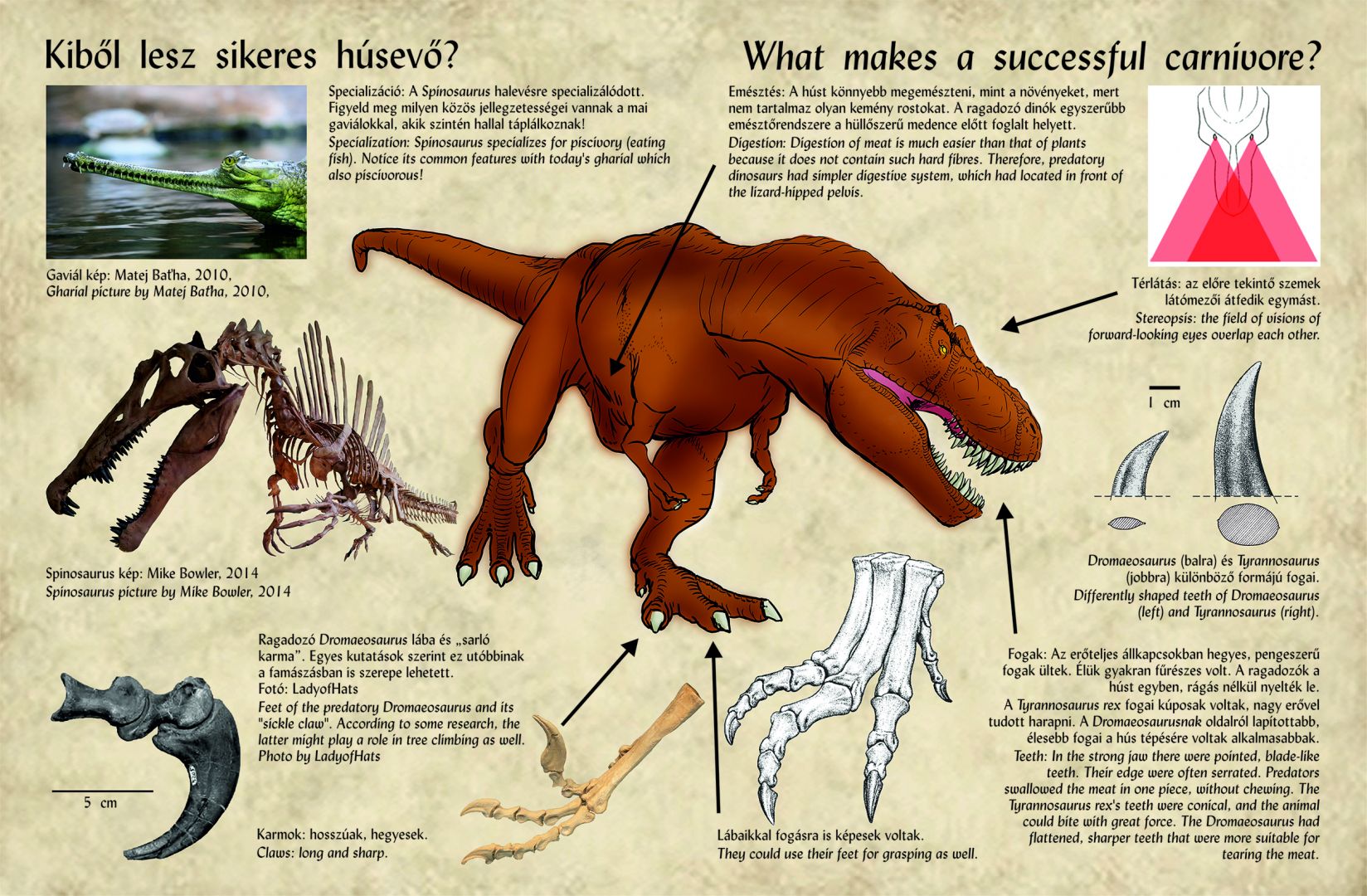ANCIENT ENVIRONMENT, FOSSILS, REPRODUCTION, DIET, BODY - 3. view / Poster chest
What makes a successful carnivore?
Teeth: In the strong jaw there were pointed, blade-like teeth. Their edge were often serrated. Predators swallowed the meat in one piece, without chewing. The Tyrannosaurus rex's teeth were conical, and the animal could bite with great force. The Dromaeosaurus had flattened, sharper teeth that were more suitable for tearing the meat.
Differently shaped teeth of Dromaeosaurus (left) and Tyrannosaurus (right).
Digestion: Digestion of meat is much easier than that of plants because it does not contain such hard fibres. Therefore, predatory dinosaurs had simpler digestive system, which had located in front of the lizard-hipped pelvis.
They could use their feet for grasping as well.
Claws: long and sharp.
Feet of the predatory Dromaeosaurus and its "sickle claw". According to some research, the latter might play a role in tree climbing as well.
Photo by Ladyof Hats
Stereopsis: the field of visions of forward-looking eyes overlap each other.
Specialization: Spinosaurus specializes for piscivory (eating fish). Notice its common features with today's gharial which also piscivorous!
